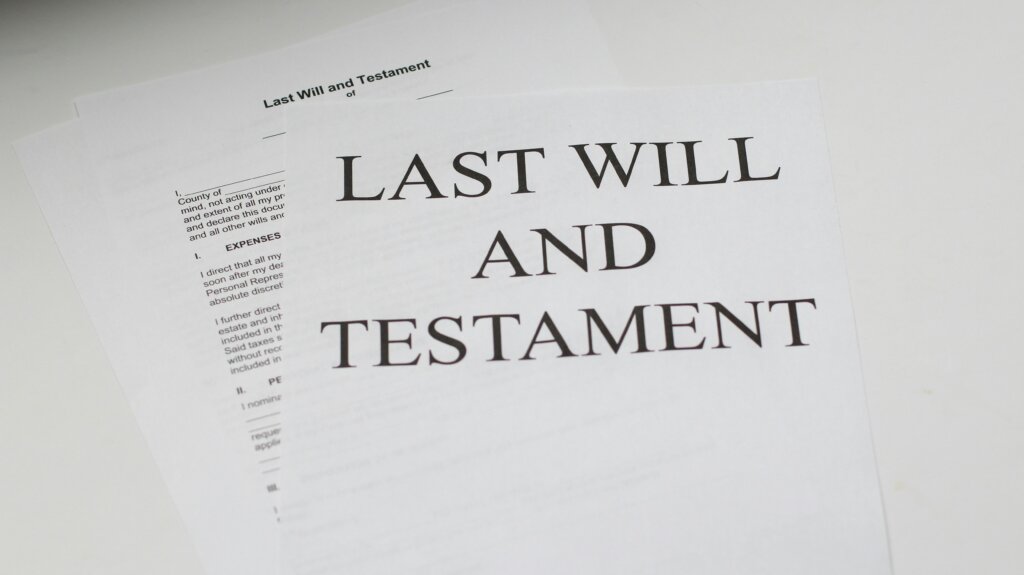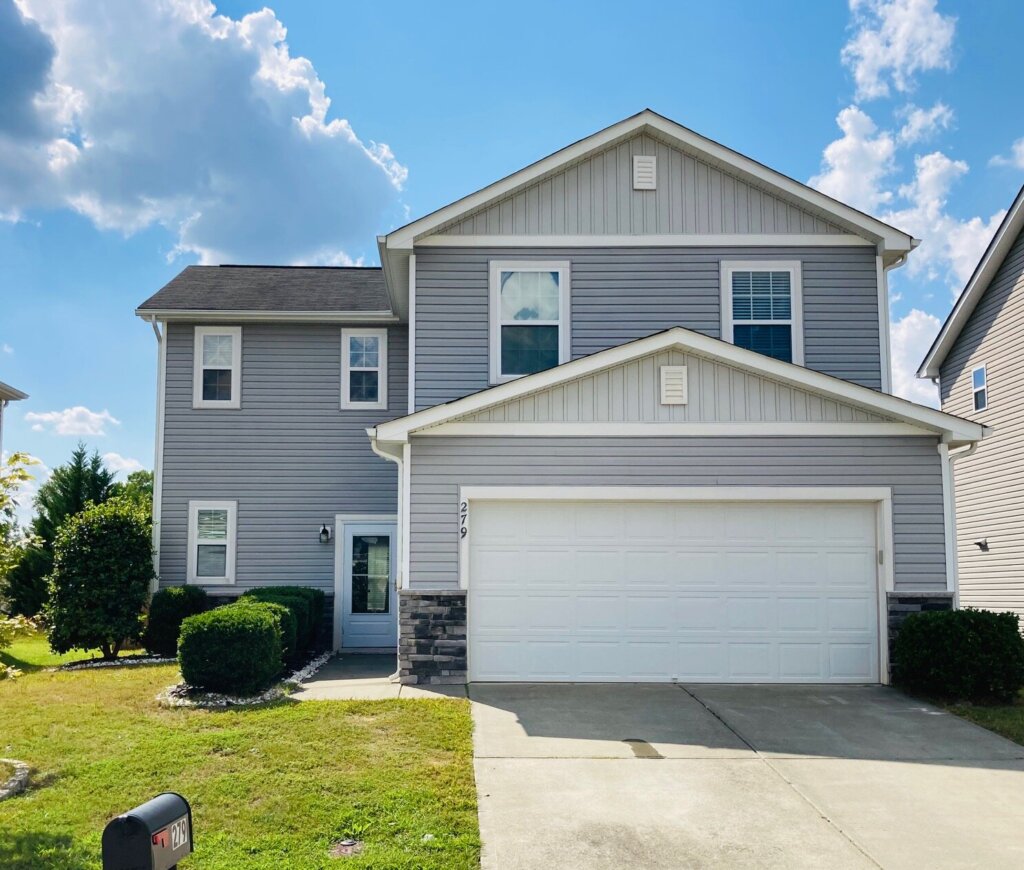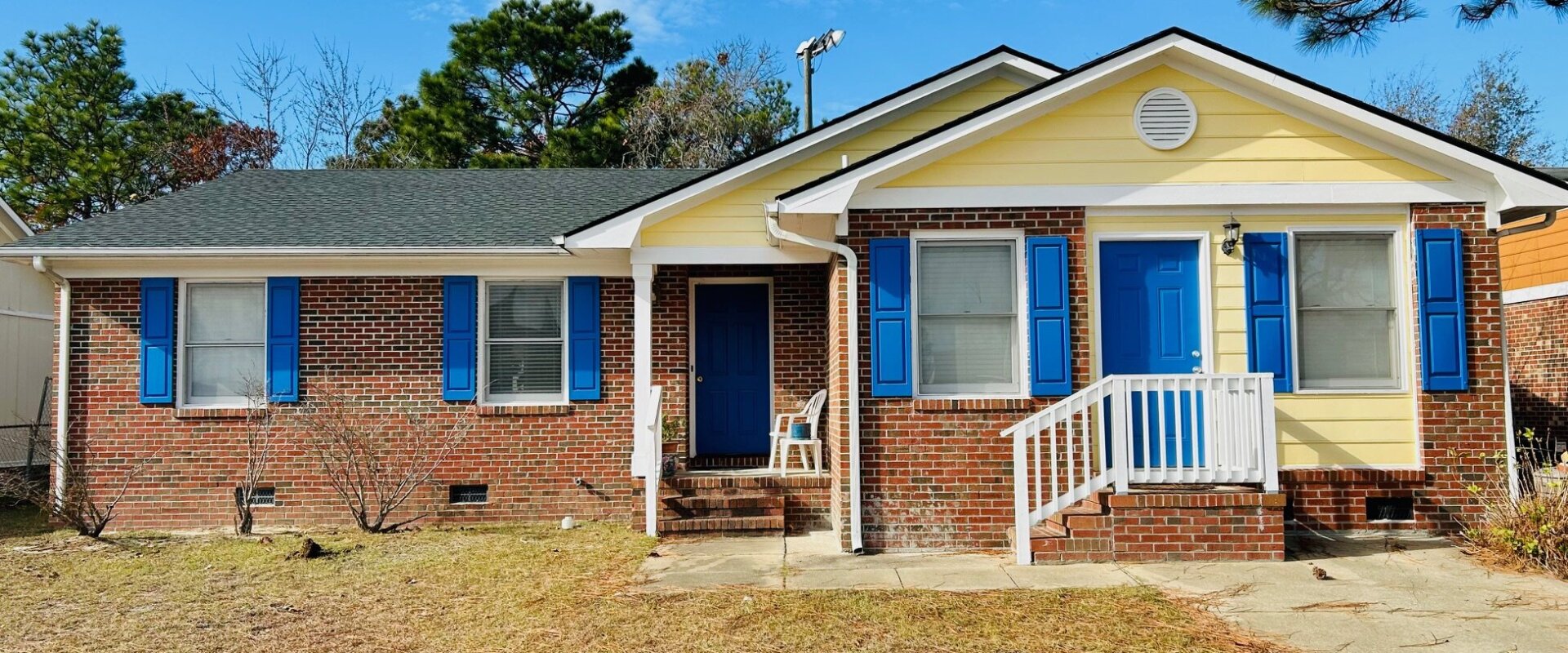Discover everything you need to know about selling inherited property in North Carolina. This guide covers the probate process, timelines, executor responsibilities, and key tax implications—plus expert tips to help you navigate and sell inherited real estate with confidence.
Table of contents
- Selling inherited property in North Carolina
- What is probate?
- When is probate required in North Carolina?
- How to avoid probate in North Carolina
- Probate process in North Carolina
- How long does probate take in North Carolina?
- How long do you have to file probate after death in North Carolina?
- Steps to selling inherited property in North Carolina
- How do you know when estate is settled in North Carolina?
- Tax Implications of selling inherited property in North Carolina
- Can I sell my inherited house before probate is completed North Carolina?
- Conclusion: Selling inherited property in North Carolina

Selling inherited property in North Carolina
Thinking about selling inherited property in North Carolina? Inheriting a home can bring a mix of emotions—grief, confusion, and uncertainty—especially when you’re suddenly responsible for handling the sale. Navigating the legal and financial steps after losing a loved one can feel overwhelming, but understanding the process is the first step toward making confident, informed decisions.
If probate is necessary, the process will go more smoothly and comfortably if you know what to expect and are prepared with the information needed for any challenges that may come your way.
This comprehensive guide should help ease the burden of selling inherited property in North Carolina and give you the tools needed for a smooth sale.
What is probate?
Probate in North Carolina is the legal procedure following the passing of a loved one (decedent), wherein their will and estate affairs are managed. Regardless of whether a will exists, probate is initiated by petitioning the clerk of court to appoint an individual (known as an executor or administrator) to oversee the estate’s administration. This entails the collection of assets, settlement of debts, and fulfillment of tax obligations. Upon conclusion of probate, the appointed executor can distribute the remaining assets with the other beneficiaries (heirs), serving as an inheritance for the family.

Tip From Author
Selling Inherited Property in North Carolina
Since 2017, I have closed over 175 transactions in North Carolina. I’ve encountered countless situations with inherited property. It can be a very daunting task at a very emotional time causing high levels of stress for an executor [of estate]. As real estate is often the largest asset with inheritance it has the ability to overwhelm an executor, but it can also be a blessing. Here are a few tips that I’ve observed from heirs/executors who have successfully sold inherited property.
- Take it step by step. Don’t worry about the sale of real estate until you have the clearance to sell.
- There is a 90-day “notice to creditors” that must take place during probate in North Carolina. This determines any unknown debts owed against the property. A property cannot be sold until this period is finalized.
- If you are trying to avoid holdings costs (mortgage, insurance, taxes, utilities, etc.) I would recommend marketing the property during the 90-day period to field offers to get an idea of how much it will sell for.
- You can enter into contract with a buyer prior to the 90-day period ending as long as closing is scheduled for after the culmination of this timeframe. If done right, you can have the house sold within days of this period ending which will result in significantly less holdings costs for the heirs of the property.
Our goal is make the probate process on sellers as easy as possible. It often helps to have an expert alongside you as you get through the probate process. We are here if you have questions. We hope these tips and information help you on your journey.
Jason Hill, Freedom Choice Investments
When is probate required in North Carolina?
Probate is a crucial part of settling an estate and is often required when selling inherited property in North Carolina. This legal process allows the court to validate the deceased person’s will and ensure assets—like real estate, vehicles, or bank accounts without named beneficiaries—are properly distributed. For many families, navigating probate is a necessary step to gain the legal authority needed to transfer ownership of inherited property.
How to avoid probate in North Carolina
While probate is often a necessary step in estate administration, there are circumstances where it may be avoided. Let’s explore these potential scenarios:
If all estate assets are held in a trust
Holding assets in a trust helps avoid probate by transferring legal ownership of the assets to the trust, thereby removing them from the individual’s estate. With a designated successor trustee managing the trust, assets can be distributed according to the trust’s terms without the need for probate court involvement, ensuring a more efficient and private transfer process. This approach also minimizes costs and delays associated with probate proceedings.

Summary administration
If the decedent left everything to their surviving spouse, the spouse may request a simpler court process known as “summary administration.” This can be initiated at the county court where the deceased resided. However, this streamlined process cannot be utilized if the will prohibits it or if the property is left to the surviving spouse in a unique manner, such as through a trust.
Petition the court
If both spouses lived in North Carolina, the surviving spouse has the right to petition the court for a $60,000 allowance from the decedent’s personal belongings. This allowance is intended to support the surviving spouse for one year following the death, regardless of whether the deceased had a will or whether the surviving spouse has already claimed a share of the estate in court. This $60,000 is protected from creditors and is sourced from the surviving spouse’s entitlement according to the will.
Estate amounts to less than $20,000
If the decedent’s assets amount to less than $20,000, the full probate process can be bypassed. Instead, an affidavit can be filed with the county clerk, allowing for the collection of the deceased’s belongings without undergoing the entire estate probate process. If the surviving spouse is the sole heir or beneficiary, the asset limit is increased to $30,000.
Survivorship to spouse
As it relates to real estate specifically (not other assets in the estate), if a surviving spouse owns property as joint tenants with the right of survivorship or as tenants by the entirety with the decedent, the property automatically goes to the surviving owner(s) upon death, thus avoiding the need for the property to go through probate.
Probate process in North Carolina
The first step in the probate process is confirming whether a valid will exists. If you’re unsure of its location, you can begin by visiting the county courthouse to start the process of appointing an executor, administrator, or personal representative—the individual responsible for managing the deceased’s estate. Once the will is located and submitted, the clerk of court will review and validate its authenticity. If any uncertainties arise, consulting with a probate attorney is highly recommended to ensure everything is handled correctly.

Subsequently, you’ll receive official letters from the clerk of court confirming your appointment as the estate’s representative. These letters serve as legal authorization for handling estate matters, such as accessing bank accounts and dealing with creditors.
As the executor, it’s imperative to establish a separate bank account for estate funds to prevent commingling with personal finances, which could lead to complications.
Additionally, a notice to creditors must be published in the newspaper, allowing any potential claimants to come forward within a specified period (usually 90 days). Meanwhile, you’ll begin gathering assets, managing property, and addressing any outstanding bills and liens. It is common for the executor to begin exploring a sale of the estate’s real estate at the completion of this 90-day period.
Periodically, you’ll submit an accounting to the court detailing your findings and actions. Valid debts are paid following a specific order outlined by North Carolina law, with final distributions made to heirs once all obligations are settled.
How long does probate take in North Carolina?
The probate process in North Carolina typically spans anywhere from three to eighteen months, or longer if there’s no will. The size of the estate has a significant impact on the timeline. However, having a will or establishing a trust can streamline or bypass probate altogether for an inherited property.
How long do you have to file probate after death in North Carolina?
In North Carolina, there’s no exact deadline to begin the probate process after a person’s passing—but it’s wise to get started as soon as possible. Ideally, probate should be initiated within 60 days of the decedent’s death to allow for a smooth and timely administration of the estate. Starting early helps prevent delays, ensures legal requirements are met, and allows heirs to move forward with settling the property and other assets.
Additionally, some actions within the probate process, such as filing tax returns or managing assets, may have their own deadlines, so it’s advisable to begin probate proceedings as soon as possible to avoid any complications.

Steps to selling inherited property in North Carolina
Now that we know how the probate process works in North Carolina, let’s discuss all the steps involved with selling inherited property in North Carolina.
Identify if there is a will/open estate
If you’ve recently inherited property in North Carolina and need to determine if there’s a will, start by searching the decedent’s personal documents and contacting the county clerk to check for any filed wills. If you find the will, file a petition with the probate court to open the estate and appoint an executor or personal representative.
Assign an executor
After the will is submitted, the clerk of court verifies its authenticity. As the designated executor, you’ll be issued official letters from the clerk of court affirming your role as the estate’s representative. These letters are referred to as Letters of Testamentary and they grant you legal authority to manage estate affairs, including accessing bank accounts and addressing creditor matters.
Discover any outstanding debts against estate
As the executor of an estate in North Carolina, identifying outstanding debts involves reviewing personal records, contacting known creditors, checking credit reports, searching public records, publishing a notice to creditors, and reviewing estate documents. Consulting with a probate attorney can provide valuable guidance in navigating the process and resolving any creditor-related issues that may arise. This process usually takes 90 days to allow for any creditors to come forward if debts are owed.
Prepare house for sale
Selling inherited property in North Carolina can present a valuable opportunity for heirs, but proper preparation is key to maximizing its potential. Start by assessing the home’s condition and setting clear goals for the sale. Clean and declutter the interior, and address any necessary repairs to make the property more marketable. Enhance curb appeal with simple landscaping and exterior maintenance. For the best results, consider staging the home to highlight its strengths and hiring a professional photographer to capture high-quality images that attract serious buyers.
Grant permission from court to sell
In North Carolina, in order to sell an inherited house that’s in probate, the executor must gain court permission by filing a petition with the probate court detailing the property’s condition, reasons for selling, and providing necessary documentation such as the will and property valuation. Notify interested parties and attend a court hearing where the judge will review your petition and grant permission if deemed appropriate.

Market and negotiate
Once permission is granted you are free to market the inherited property. We recommend starting this process no earlier than 30-60 days prior to the estimated completion date of probate in order to align a buyer’s timeline with the conclusion of probate.
Collaborating with a skilled real estate agent familiar with selling inherited property can streamline the sales process, from pricing competitively to marketing effectively and negotiating offers.
Conversely, if you are in need of a quick sale, especially if the court is recommending it to pay off other debts associated with the estate, selling as-is to a cash home buyer may be a more advantageous route.
Finalize probate/close
The sale of an inherited property can only be finalized once the probate court grants approval. The executor must carefully document every detail of the transaction and submit it for court review. Once the court signs off, the closing process can move forward. After closing, the proceeds from the home sale must be deposited into the estate account, where they’ll be managed and distributed according to the terms of the will or state law.
How do you know when estate is settled in North Carolina?

A final copy of all documentation, including checks, inventory, and the final accounting, is submitted. This signifies the completion of the estate administration process, with all assets disbursed to the beneficiaries, and the estate’s financial balance returning to zero. There should be no assets left in the estate as they would have been distributed to the beneficiaries or trusts. Further notices to financial institutions are typically unnecessary. However, it’s important to inform the Internal Revenue Service of the termination of your fiduciary role.
Tax Implications of selling inherited property in North Carolina
Inheriting property can evoke mixed emotions, blending both opportunity and the weight of responsibility – especially as it relates to tax obligation. In North Carolina, as in many states, navigating the tax terrain surrounding inherited property demands careful attention, as it wields considerable influence over the recipients.
This section delves into the tax regulations specific to inherited property in North Carolina and the nuances of inheritance tax and capital gains tax. It delineates the parties accountable for tax payments, considerations for potential exemptions, and highlights strategies aimed at alleviating tax burdens on inherited property.
Understanding inheritance tax North Carolina

When beneficiaries inherit property, a primary concern often revolves around discerning between inheritance tax and estate tax. Notably, in North Carolina, there is no imposition of inheritance tax at the state level, setting it apart from various other jurisdictions.
The state does not impose taxes on the inheritance received by beneficiaries. However, it’s crucial to recognize that a federal estate tax might be applicable to the estate of the deceased if its value surpasses a specific threshold.
The federal estate tax is determined by the total value of the estate prior to its distribution among heirs. Consequently, beneficiaries in North Carolina are not directly liable for state-level inheritance tax. Rather, their attention is predominantly directed towards potential implications of the federal estate tax and the capital gains tax on inherited property should they choose to sell it. This distinctive tax environment highlights the significance of comprehending both federal and state-level factors when managing the intricacies of inheriting property in North Carolina.
Tax responsibilities when selling inherited property in North Carolina
In North Carolina, estate tax obligations fall on the estate itself—not the heirs or beneficiaries. Federal estate tax only applies if the total value of the estate exceeds a certain threshold set by federal tax law, which can change year to year. It’s the responsibility of the executor or personal representative to accurately calculate and pay any owed federal estate taxes before distributing assets to heirs. Proper handling of this step is essential to avoid legal or financial complications during the probate process.

Utilizing estate planning strategies and exemptions can help reduce the impact of the federal estate tax. It’s prudent to seek guidance from a tax professional or attorney to gain a thorough understanding of how these strategies apply to a specific estate when dealing with inherited property.
Given the potential for changes in tax laws, it’s advisable to stay updated or seek counsel from a legal expert for the latest information. Apart from inheritance or estate tax considerations, it’s vital to also consider potential implications of capital gains tax upon the sale of inherited property.
Capital Gains tax on inherited property
Although North Carolina doesn’t enforce an inheritance tax, beneficiaries may encounter capital gains tax implications upon selling inherited property. This tax is determined by the increase in the property’s value from the time of inheritance to the date of sale. It’s crucial to understand that this tax applies to the profit gained, not the property’s total value.
In North Carolina, there is a tax provision called a step-up basis that allows heirs to reduce their capital gains taxes. When someone inherits property and investments, the IRS resets the market value of these assets to their value on the date of the original owner’s death. This tax loophole allows an executor to sell their inherited property with potentially no capital gains tax if proactive measures are taken to sell the house at time of inheritance – eliminating any time for appreciation beyond the inherited value.
The rate of capital gains tax is influenced by several factors, including how long the property was held and the beneficiary’s income tax bracket. Beneficiaries have the opportunity to employ strategies aimed at reducing their tax obligations. For instance, selling the property after owning it for more than one year allows them to qualify for advantageous long-term capital gains rates.
Exemptions and strategies to protect your inheritance

If you anticipate inheriting property and seek to avoid taxes on it, there are three potential avenues for minimizing or eradicating capital gains tax entirely.
The first option is to promptly sell the property upon inheritance. By doing so, you eliminate the possibility for the property to accrue further value (thus, no capital ‘gain’).
A second option is to designate the property as the beneficiary’s primary residence. If the inherited property fulfills the criteria and serves as the beneficiary’s main dwelling, they might qualify for an exemption from paying capital gains tax on its appreciation.
A third alternative is to retain ownership of the property and rent it out. Nevertheless, it’s essential to adhere to tax regulations. If an inherited property is classified as an investment property for tax purposes, it remains liable to capital gains tax upon sale. However, you may defer payment of these taxes by acquiring another investment property to substitute the one being sold.
Alternative: Disclaiming inherited property
Disclaiming an inherited property is an option that allows heirs to avoid the responsibilities and potential tax burdens tied to the inheritance. By formally declining the inheritance, you effectively remove yourself from any legal or financial obligations related to the property. This strategy can be especially useful if the property carries debt, legal complications, or tax liabilities you’d prefer not to take on.
It’s important to understand that disclaiming an inherited property is a permanent decision and cannot be undone. Once you officially decline the inheritance, the property passes to the next eligible beneficiary according to the will or state law. By disclaiming your interest, you give up all rights to the asset and any future claims to its value.
Can I sell my inherited house before probate is completed North Carolina?
Selling inherited property during the probate process is possible, but it requires adherence to the probate court’s process and procedures. In some cases, selling the inherited house becomes necessary to settle outstanding estate debts.

The executor must seek permission from the probate court to sell the inherited house. This involves disclosing the asking price and sale details, allowing the court to assess if the sale benefits the beneficiaries.
Once the court approves the sale, the executor can advertise the property. Negotiations can proceed, but finalizing the deal is contingent upon obtaining a Grant of Probate. We recommend marketing and negotiating the sale 30-60 days prior to estimated probate completion if you plan to avoid a capital gains tax on the sale. The executor must meticulously document all sale-related activities for the probate court’s review.
Upon court approval, the closing occurs, and proceeds from the sale are deposited into the estate account. Prioritizing estate debts, the executor disburses remaining funds and assets to the beneficiaries.
Conclusion: Selling inherited property in North Carolina
Selling inherited property in North Carolina can seem overwhelming because of all the steps involved before the sale. We hope this article has eased some of your worries and given you a clearer idea of what to expect next. If you’d like help selling inherited property or want to talk with an experienced probate real estate agent or cash home buyer, please don’t hesitate to contact us at Freedom Choice Investments by calling (919) 285-1284. We’re here to guide and support you through every step of the process.
These findings apply to all cities and towns in North Carolina, including Raleigh, Durham, Fayetteville, Johnston County, Sanford, Burlington, and surrounding areas.
Related Articles
Can you sell a house in foreclosure in North Carolina?
How to sell rental property in North Carolina (and avoid paying taxes)?
Selling a house as-is in North Carolina (How to sell a house that needs repairs)
How much are seller closing costs in North Carolina?
Can a house be sold with a lien on it in North Carolina?
A guide to selling a house with tenants in North Carolina
A guide to selling inherited property in North Carolina
Selling a house during divorce in North Carolina
Selling house for job relocation North Carolina
Selling a fire damaged house North Carolina
Selling a house with code violations North Carolina
At Freedom Choice Investments we specialize in buying and listing inherited property in North Carolina that are in the process of probate. We pay cash for inherited property making the transaction quick and easy or we can help you obtain a top dollar offer with a listing.
If you’re interested in selling inherited property in North Carolina, fill out the form below or contact us at (919) 285-1284 for a no-obligation cash offer.
Sell My House Fast For Cash Today!
Get started now. Fill out the form to receive your cash offer in minutes. There’s no obligation. We buy houses in any condition and always close on YOUR timeline.

Author: Jason Hill
I am a seasoned real estate agent and investor with nearly a decade of experience helping families sell inherited property in North Carolina. As the founder of Freedom Choice Investments my mission is to deliver simple and hassle free selling solutions to North Carolina homeowners. With the ability to either list your house or buy it as-is we have a unique offering that caters to those looking for ways to sell inherited property in North Carolina.


